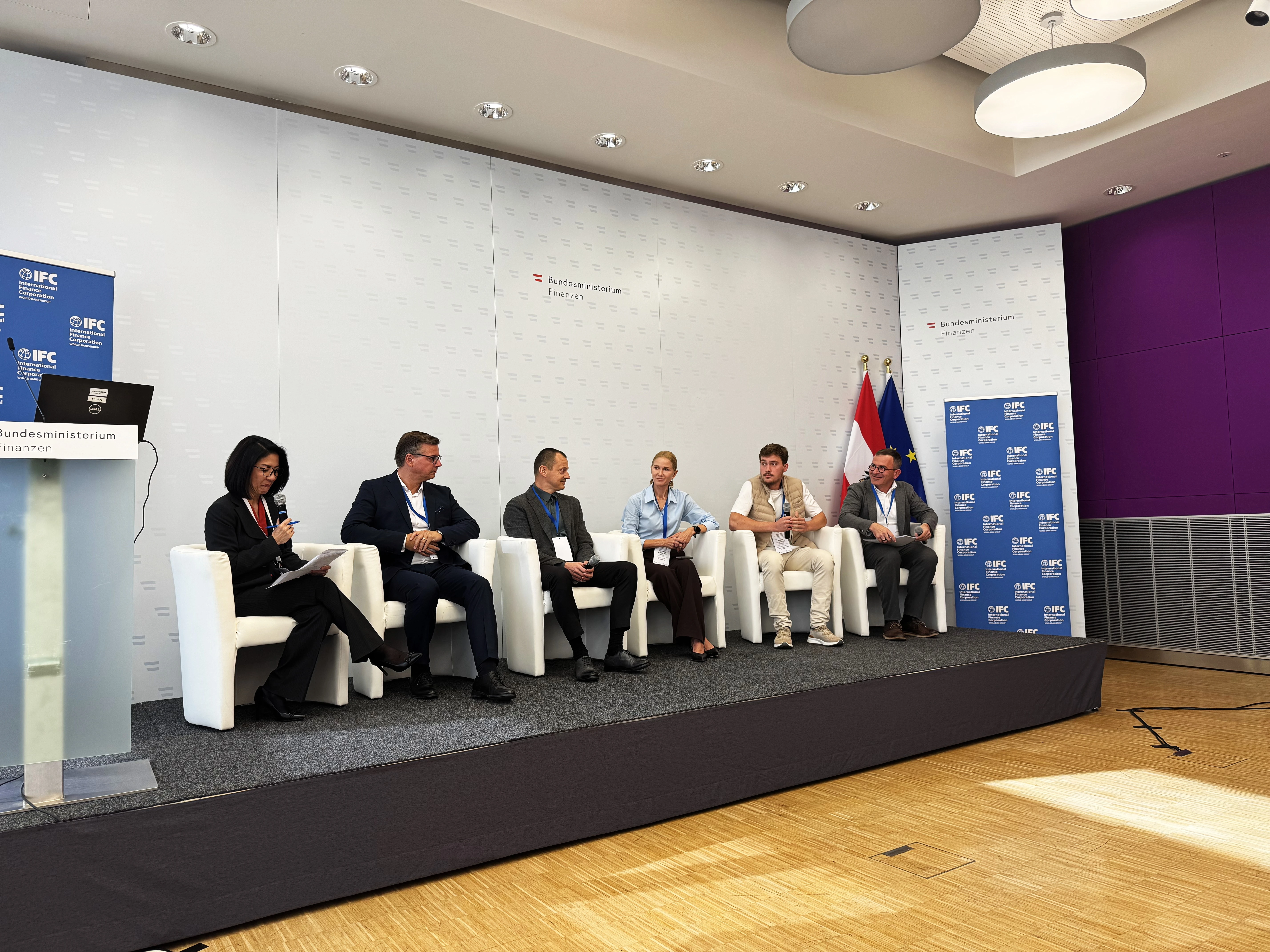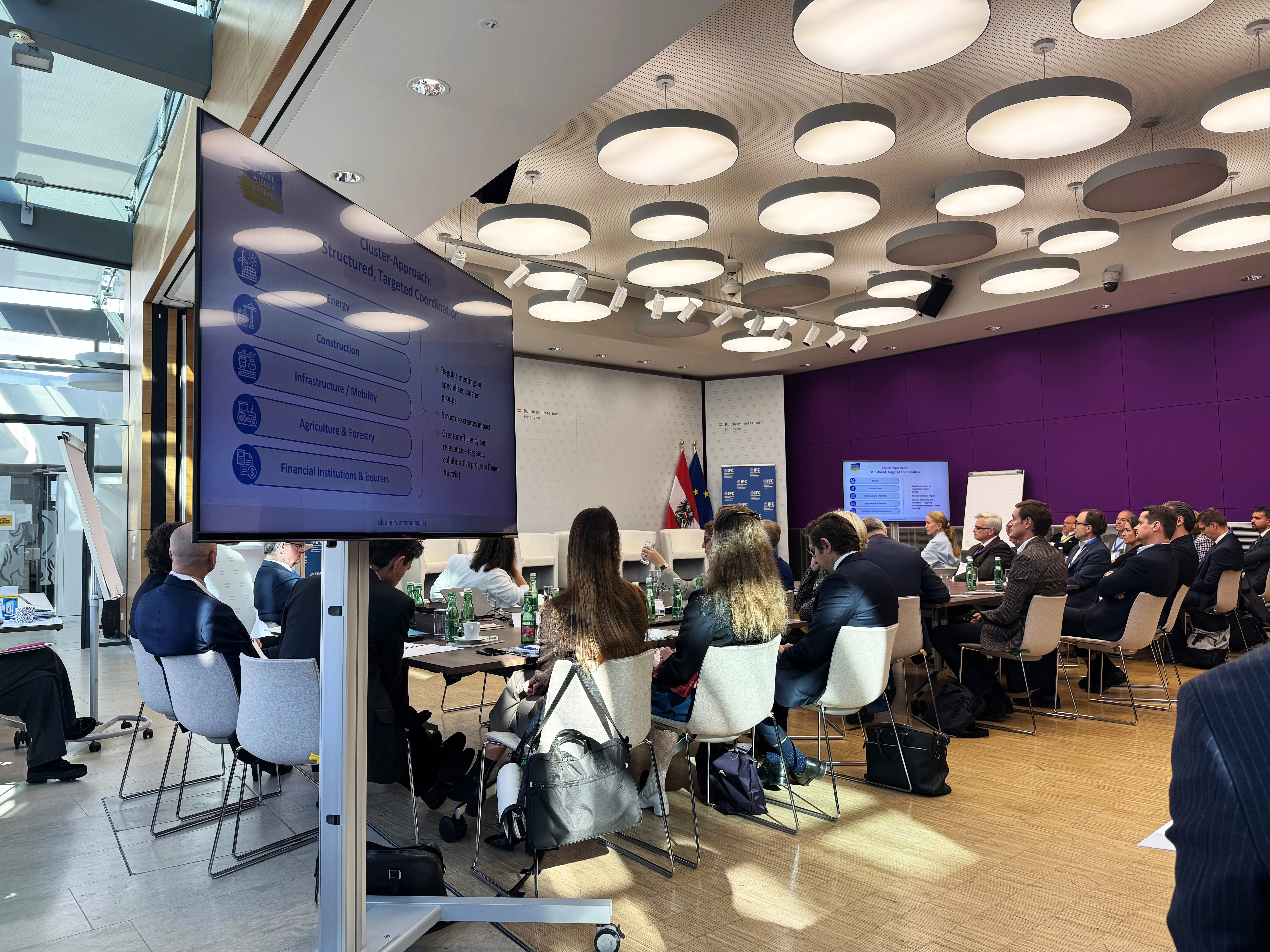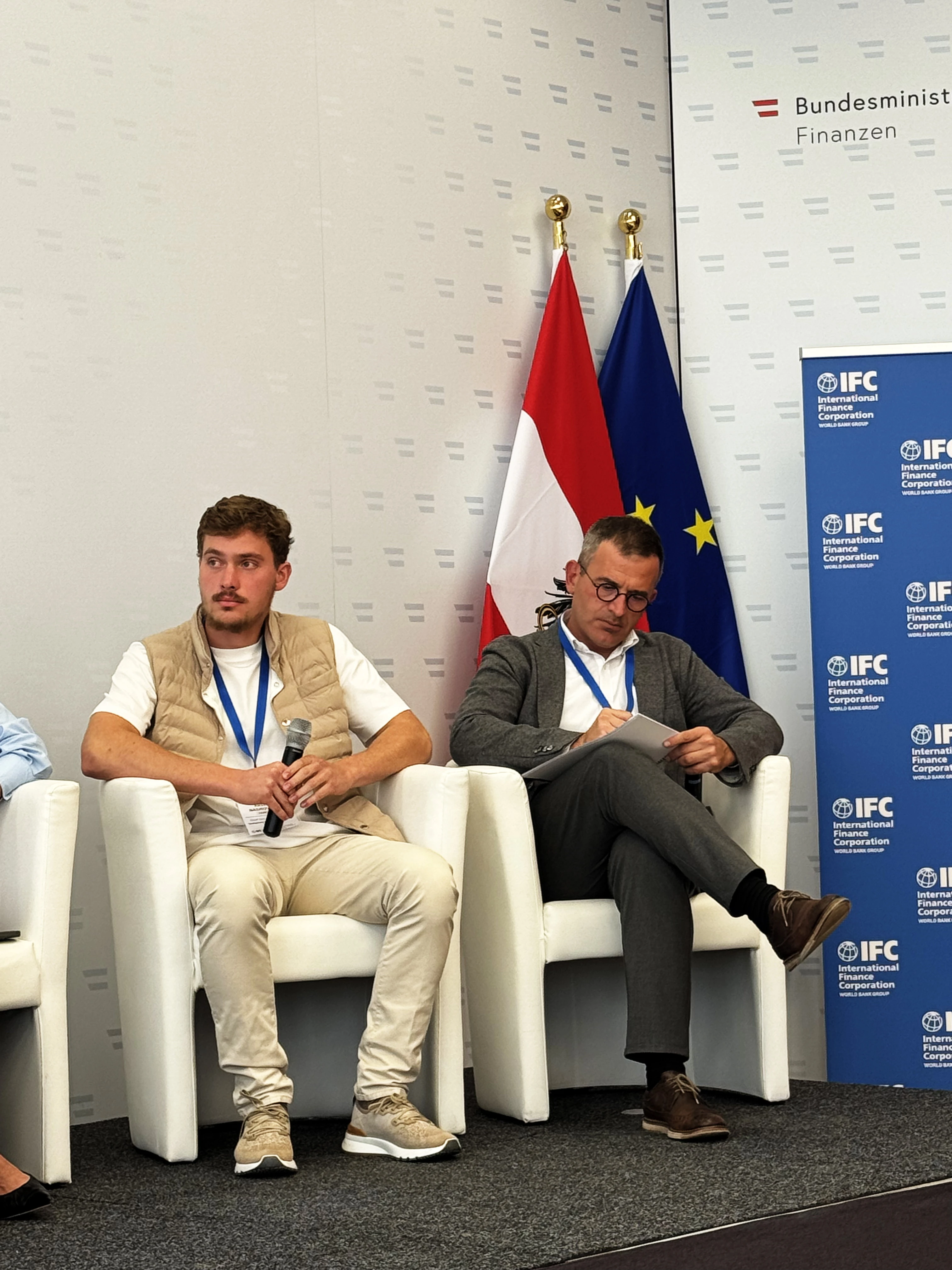Ukraine: path to recovery and economic transformation - insights from the World Bank discussion in Vienna by the DIM group
06.10.2025

2-3 October in Vienna, a strategic meeting of World Bank representatives, IFC, and international financial institutions dedicated to Ukraine's recovery took place. Participants discussed key reform directions, investment priorities, and mechanisms for attracting private capital to the reconstruction process.
The DIM group was represented at the forum in Vienna by junior partner Arseniy Nasikovsky. He held a series of meetings with Austrian and European manufacturers, bank executives, IFC representatives, and participated in a roundtable on the investment future of developer projects in Ukraine, calling on international investors to actively cooperate.
The 'Russian invasion of Ukraine has led to massive destruction and the disappearance of entire cities. Over 10% of housing stock has been destroyed or damaged, millions of people have been forced to leave their homes. This is not only a humanitarian challenge, but also a historic opportunity for Ukrainian developers. As reconstruction will require a huge amount of not only construction materials but also primarily the experience of companies that will offer modern solutions for residential construction, the development of industrial and commercial enterprises, create new jobs, and integrate the Ukrainian market into the European economic space,' emphasized Arseniy Nasikovsky.
According to World Bank estimates, direct war losses by the end of 2024 exceed $176 billion, and total reconstruction needs are approximately $524 billion, which is equivalent to 2.8% of Ukraine's GDP.The most affected sectors are:- housing sector - over $57 billion (33%);- transport - $36 billion (21%);- energy and mining industry - $20 billion (12%);
- commercial real estate and industry - $17 billion (10%);
- - education and science - $13 billion (8%).
- International partners emphasized that the key principle is the 'Build Back Better' approach – 'rebuilding better than before,' with a focus on energy efficiency, inclusivity, and long-term sustainability. The reconstruction of Ukraine should be based on key structural reforms:
- - updating the business environment and harmonizing regulations with the EU;
- - stimulating trade and competition;
- - attracting foreign and domestic investments;
- building a competitive, export-oriented economy;
- - focusing on 'green' and digital technologies, sustainability, and compliance with EU standards.
- As Arseniy Nasikovsky noted, the Ukrainian development market has enormous potential, but to realize it, proactive engagement of stakeholders, investment attraction, partner search, transparency, and compliance with international standards in work are needed.
- 'DIM has already taken a step in this direction by engaging a strategic partner to implement existing projects and launch new landmark projects for the Ukrainian market over the next 10 years covering an area of over 935,000 m2. At the end of 2024, the company ranks in the top 3 developers in Kyiv and occupies the 7th place in Ukraine in terms of housing delivered. However, only transparency, audit, and implementation of ESG standards can open the doors to the trust of international investors. We have experience in cooperation with CBRE - we were the first among developers in the real estate market in Ukraine to conduct a construction audit, and by the end of the year, we plan to be the first to conduct a financial audit. This is the only correct way for Ukrainian developers to attract international investment,' emphasized Arseniy Nasikovsky.
- A separate focus of the forum was on the development of affordable housing. During a roundtable discussion organized with developers, investors, and World Bank experts, challenges and perspectives of this segment were discussed.
- According to World Bank estimates, 13% of Ukraine's housing stock has been destroyed or damaged, affecting over 2.5 million households. The total housing deficit is up to 7 million apartments, of which 5-7 million are consequences of the war and another approximately 1 million are additional demand due to internally displaced persons (over 5 million officially registered).
The sector's potential is currently estimated by experts at almost 90-170 million m2 of new housing in the next 10 years, creating a powerful multiplier for the construction industry, employment, and investments.
International partners also emphasized the need to develop domestic production of key building materials - cement, steel, glass, and insulation, which account for up to half of the reconstruction costs. This will reduce dependence on imports, mitigate logistical risks, and make the reconstruction process more sustainable.
IFC experts emphasized that efforts to reconstruct Ukraine could generate demand equivalent to over 15% of the current global building materials market. This, in turn, opens significant opportunities for Austrian and European companies, which, due to their innovations and sustainable practices, can play a leading role in the reconstruction process.
'We understand that the reconstruction of Ukraine is not just a matter of square meters. It is a matter of energy efficiency, environmental friendliness, and a new quality of life. The Ukrainian market now needs innovation, partnerships, including with European companies and the localization of production. The DIM group strives to be among those who set this standard and offer solutions that will remain relevant for decades to come,' emphasized Arseniy Nasikovsky.
Ukraine: path to recovery and economic transformation — insights from the World Bank discussion in Vienna by the DIM group
DIM - a well-known company in residential construction, leading discussions on the path to recovery and economic transformation in Ukraine. Learn more about the insights from the World Bank discussion in Vienna.
shlyah-do-vidnovlennya-ta-ekonomichnoyi-transformaciyi
/post/novina/shlyah-do-vidnovlennya-ta-ekonomichnoyi-transformaciyi





-d45c4d6a-1a70-43a9-9805-56bb22cc0aae-768x432.webp)